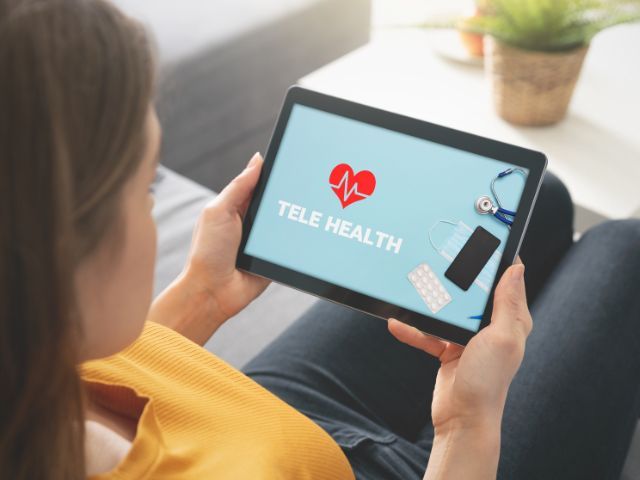The adoption of telehealth services has significantly transformed healthcare delivery worldwide, especially in underserved communities like those within the Latino population. With the rapid advancements in technology and the increasing need for accessible healthcare, telehealth offers a promising solution to many barriers faced by Latino communities, including geographical limitations, linguistic challenges, and cultural discrepancies.
This article delves into best practices for implementing telehealth services in Latino communities, aiming to provide mental health professionals with insights that can enhance the effectiveness and reach of their services. By embracing these practices, professionals can join forces with organizations like the Latino Behavioral Health Coalition (LBHC) to ensure equitable healthcare access and outcomes for Latino individuals and families.
Cultural Competency and Sensitivity
Understanding and respecting cultural nuances is paramount in the successful delivery of telehealth services to Latino communities. Healthcare providers should be trained in cultural competency to recognize and address the unique beliefs, values, and needs of Latino patients. This includes understanding familial dynamics, spirituality, and the community's perspective on mental health and wellness. Providing services in a culturally sensitive manner can significantly improve patient engagement and treatment adherence.
Language Accessibility
Language barriers are a significant obstacle in the healthcare system for many Latinos. Offering telehealth services in Spanish or providing access to bilingual healthcare providers can drastically improve communication and patient satisfaction. Additionally, translating all educational materials and consent forms into Spanish ensures that patients fully understand their healthcare options and the telehealth process.
Technology Literacy and Accessibility
While telehealth aims to make healthcare more accessible, technology can be a barrier for some Latino individuals, especially those in older generations or in low-income areas. Implementing user-friendly platforms and providing training sessions or instructional materials in Spanish can help overcome these challenges. It's also important to consider alternative solutions for patients with limited access to technology, such as telephone-based consultations.
Community Engagement and Education
Engaging with the Latino community through educational initiatives can help demystify telehealth and address any skepticism or fears. Hosting webinars, workshops, and informational sessions about the benefits and processes of telehealth, as mentioned in the LBHC's goals for 2024, can foster trust and encourage the utilization of these services. Partnering with local organizations, churches, and community centers can also enhance outreach efforts.
Privacy and Confidentiality
Ensuring the privacy and confidentiality of telehealth sessions is crucial, especially for communities that may have concerns about data security and personal privacy. Providers should use secure, HIPAA-compliant platforms for all telehealth interactions and educate patients on how their data is protected.
Insurance and Payment Flexibility
Understanding the insurance landscape and offering flexible payment options can help mitigate one of the significant barriers to accessing telehealth services. Providers should be knowledgeable about the insurance policies that are common among Latino populations and offer assistance in navigating these systems. Additionally, providing sliding scale fees or payment plans can make services more accessible to uninsured or underinsured individuals.
Integrated Care Models
Adopting an integrated care model that combines mental health services with primary care can enhance the continuity of care for Latino patients. This approach acknowledges the interconnectedness of physical and mental health and facilitates comprehensive care planning that addresses the full spectrum of patient needs.
Monitoring and Evaluation
Implementing a robust system for monitoring and evaluating telehealth services can provide insights into their effectiveness and areas for improvement. Regularly collecting feedback from patients and healthcare providers can help identify barriers to access and satisfaction, allowing for the continuous refinement of telehealth practices.
Conclusion
As telehealth continues to evolve as a vital component of healthcare delivery, understanding and implementing best practices tailored to the needs of Latino communities is essential. By fostering cultural competency, ensuring language accessibility, enhancing technology literacy, and engaging the community, healthcare providers can significantly improve the accessibility and quality of care for Latino individuals and families. The Latino Behavioral Health Coalition (LBHC) remains committed to supporting these efforts, driving forward the mission of equitable health access for all. Join us in embracing telehealth as a tool for empowerment and wellness within Latino communities.

Our Mission
Our constituents are our members and the clients served by our members and the greater society that benefit from the mental health services and well-being of Latinos.
The LBHC is committed to improve, advocate and prioritize mental health services in Philadelphia and Pennsylvania.
Become A Member
The LBHC provides its members with opportunities to create and shape platforms in support of our collective principles/missions and developing policy priorities.
As a member of the LBHC, you are connected to a network of Latino behavioral health and social justice organizations and provided with access to resources, policy briefings, external engagement opportunities, and individualized policy capacity building advice and support.
 English
English  Espanol
Espanol